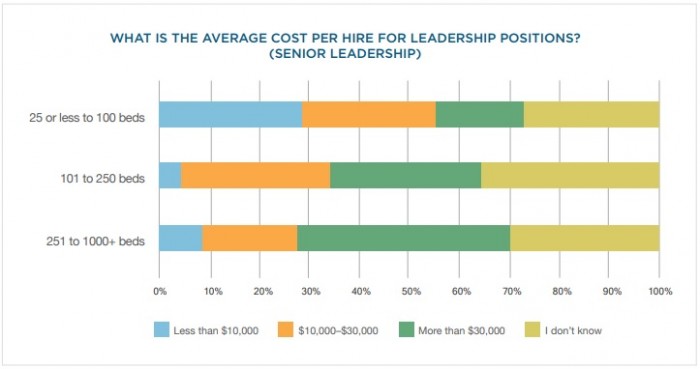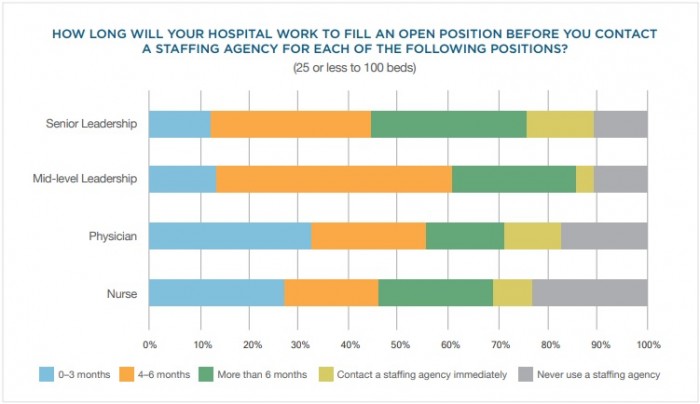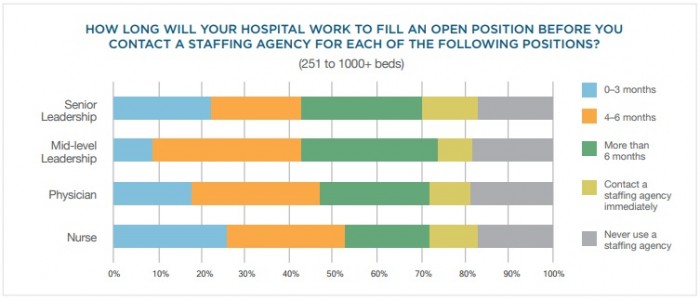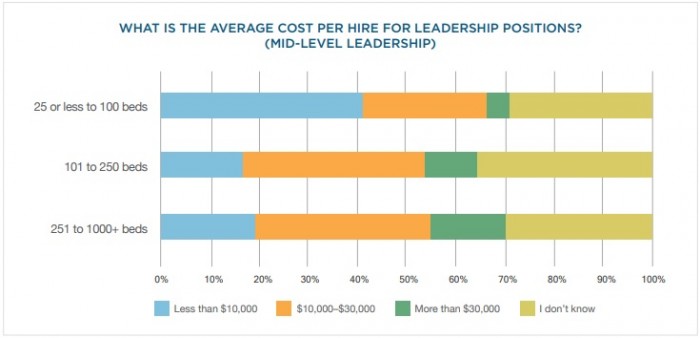Industry Update: Facilities Struggling to Recruit
Healthcare Staffing, Recruiting a Challenge for Facilities
Facilities and hospitals are continuing to face greater challenges in recruiting, highlighting the importance of staffing agencies
Healthcare staffing remains a problem for facilities, with almost 31 percent reporting that they cannot find enough candidates to fill open positions, a recent survey of over 200 hospital C-suite executives, administrators, and human resources leaders uncovered.
The survey, conducted by the Massachusetts-based staffing firm Leaders for Today, also showed that hospitals are not finding enough high-quality candidates to fill healthcare staffing gaps. Almost one-quarter (23.9 percent) of respondents said that their hospital has a quick turnaround for filling positions, but not all the candidates are qualified to do the job.
“Candidate shortages, as it turns out, are not specific to hospital size or location,” researchers explained. “As part of our survey, we examined the hiring situations for hospitals across all shapes and sizes: hospitals with large numbers of beds, critical access hospitals and everything in between. While hiring strategies do vary by size, the underlying results are consistent across all types and locations. When looking to make a hire, finding enough qualified candidates is a real problem across the board.”
With recruiting qualified candidates as a top healthcare staffing challenge, the majority of hospital leaders (51.6 percent) reported that their organization’s ability to find qualified candidates in a reasonable amount of time was not very good.
Only 5 percent of survey participants thought their hospital found good candidates in a timely manner and another 35.2 percent rated the recruiting process as good.
READ MORE: Effective Transitions of Care After Discharge Process
Hospitals are finding that it takes months to fill open positions. Only slightly more than 25 percent of leadership positions are being filled within three months.
To fill managerial positions or above, most hospitals (39 percent) wait four to six months, and another 31 percent wait seven to twelve months.
“When vacancies remain high, the ability to safely and profitably deliver care becomes more difficult,” researchers stated. “Instituting a more efficient surgery schedule, lean programs or a quality/safety initiative becomes increasingly challenging when key positions are left unfilled or the leader is so new he/she can barely find the way to the cafeteria.”
In addition to putting hospital profitability and safety at risk, healthcare staffing vacancies and long fill times cost hospitals. Medium and large hospitals typically spent between $10,000 and $30,000 to hire leadership positions that were mid-level.
Source: Leaders For Today
Small hospitals with 100 beds or fewer primarily spent $10,000 or less to fill mid-level leadership vacancies.
READ MORE: Why Are Post Acute Care Staff in High Demand?
The average cost per hire increased as the position’s leadership ranking rose. Hospitals of all sizes are typically spending at least $10,000 to $30,000 to fill senior leadership position. And large hospitals are more likely to spend over $30,000 on hiring for this position.

Source: Leaders For Today
While healthcare staffing is a challenge for all hospitals, recruiting approaches seem to differ by size. As expected, the number of human resources staff dedicated to recruiting grows as the number of hospital beds increase.
Small hospitals with 100 beds or fewer typically have one or two human resources employees dedicated to recruiting, while large hospitals tend to employ between six to ten human resources staff for recruiting.
But having a smaller recruiting workforce may not be a detriment. In large hospitals, 76.6 percent of recruiters manage over 10 searches at a time and 46.8 percent of large hospital recruiters manage over 20 searches at a time.
Just 44.2 percent of recruiters at small hospitals said they manage over 10 searches at a time, and very few (8.9 percent) manage over 20 searches.
READ MORE: 3 Exercises You Should Do Every Day
“Smaller hospitals are staffing at a level that is closer to their needs capacity,” the survey stated. “Fewer searches are required per recruiter, and there is a slightly lower reliance on outside help.”
Hospitals of all sizes are also using outside staffing agencies to fill remaining healthcare staffing gaps for leadership and clinical roles, the survey showed. Small hospitals are slightly more likely to use a staffing agency to find qualified candidates for senior and mid-level leadership roles.

Source: Leaders for Today
On the other hand, larger hospitals are seeking the help of staffing agencies equally as much for leadership roles and clinical positions, such as physician and nurse vacancies.


